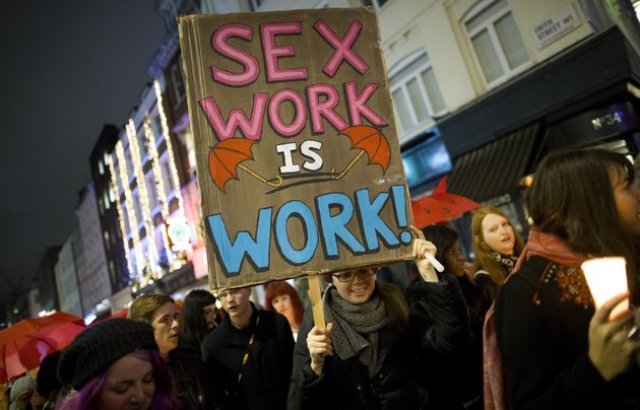
Amnesty International (AI) adopted a resolution on August 11 supporting the full decriminalisation of sex work and supporting the rights of sex workers.
It described the resolution as being based on “harm reduction” and in line with its “overarching commitment to advancing gender equality and women’s rights”.
Controversially, AI had been under sustained pressure to not support decriminalisation from a well-funded campaign, which included actors Emma Thompson, Meryl Streep and Kate Winslet. Some of AI’s critics support the “Swedish” or “Nordic” model, which penalises the clients of sex workers on the basis that they facilitate exploitation of sex workers and should be punished or prevented from doing so.
In contrast, AI’s resolution, “State obligations to respect, protect and fulfil the human rights of sex workers”, states that only with greater rights and less stigma can sex workers gain the necessary protections.
AI’s resolution comes from a two-year investigation, including extensive collaboration with sex workers and an examination of the human rights impact of various criminal law and regulatory approaches to sex work. Because of this, it veers away from agreeing with the Nordic model, which criminalises a section of the sex work industry.
Criminalising the clients of sex workers has the effect of criminalising sex workers. This is because sex workers are forced underground if clients risk arrest. This makes sex workers more vulnerable to violence and restricts their access to health and support services.
The resolution says the criminalisation of sex work “interferes with and undermines sex workers’ right to health services and information, in particular HIV prevention, testing and treatment, and serves as a contributing factor in the denial of access to justice”.
AI urges governments “to prevent and combat trafficking for the purposes of sexual exploitation” and to “protect the human rights of victims of trafficking”. Governments have “an obligation to ensure that sex workers are protected from exploitation and can use criminal law to address acts of exploitation” and “take appropriate measures to realize the economic, social and cultural rights of all people so that no person enters sex work against their will or is compelled to rely on it as their only means of survival”.
It further said: “In the same way that intersectional discrimination and oppression can limit employment options for people considering selling sex, it can also curtail individuals’ ability to leave sex work when they want to.
“States have an obligation to ensure that no person continues to sell sex against their will and that everyone can leave freely when and if they choose.”
[Amnesty International’s draft policy can be found here.]
Like the article? Subscribe to Green Left now! You can also like us on Facebook and follow us on Twitter.